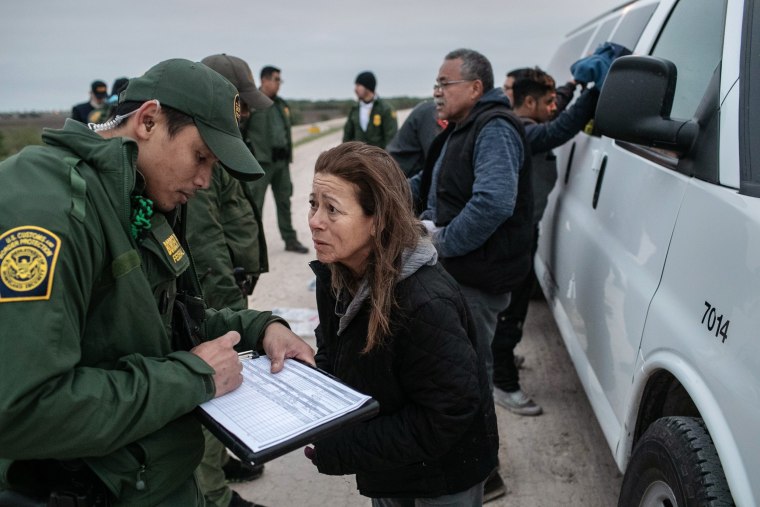WASHINGTON — The number of apprehensions at the U.S.-Mexico border declined for the eighth month in a row in January, but Acting Customs and Border Protection Commissioner Mark Morgan said during a briefing with reporters on Tuesday that in recent weeks the number of average daily apprehensions has risen.
In four of the past five years, apprehensions have begun to increase in February, according to CBP statistics. Morgan said he thinks there might be a spring surge in migrants from Mexico motivated in part by the country's stagnant economy. The recent uptick is occurring despite tough limitations on asylum opportunities and more aggressive deportation policies.
Morgan noted that the majority of people crossing the border are now individual adults from Mexico, and said that the Trump administration was having success in dissuading Central American families from coming north.
Total apprehensions at the border were lower in January than in recent months, but during the month daily apprehensions began increasing. U.S. Border Patrol apprehended 29,200 individuals crossing at the Southwest border between ports of entry during January, CBP said Tuesday morning, a decrease from the 32,858 people apprehended in December and 33,511 in November.
Morgan touted the agency's January successes, including the discovery of the longest cross-border tunnel used for smuggling in history and the seizure of more than 50,000 pounds of drugs on the Southwest border.
"We continue to see positive results because of the steps taken by the Trump Administration to control the border and uphold the rule of law," said Morgan. "We've seen eight straight months of decline, but as we see from the seizure of the longest-ever tunnel between the U.S. and Mexico and significant drug seizures, much work remains."
Migrants from El Salvador, Guatemala and Honduras have decreased, said Morgan. He hailed the administration's success in reducing numbers of apprehensions from these three countries, crediting security agreements with their governments. He noted that CBP has been promoting the message that if citizens from those countries come to the U.S., "They will be promptly removed and returned."
The Trump administration has long sought to deter migrants, many of whom were Central American families, from making the journey to the U.S. southern border. Some of the administration's policies at the border have stoked outrage over the treatment of migrants, such as the 2018 family separation policy that removed children as young as a few months old from their parents and kept them in separate detention facilities.
Last year, the administration implemented a policy to send many asylum-seekers to wait in Mexico while their cases play out. It recently began sending some asylum-seekers to Guatemala.
Critics of the Trump administration's immigration policies have said such policies violate migrants' rights and further endanger them by making them wait in dangerous border towns or in one of the most violent countries in the world, which lacks a robust asylum system. A Human Rights Watch report released earlier this month highlighted the potentially deadly risks to Salvadorans in particular — many of whom are fleeing gang violence — when they are sent to wait in Mexico or deported to El Salvador.
Morgan was also asked about the detention of Iranian Americans on the Northern border in Washington state after the U.S. killed Iranian general Qassem Soleimani in January. CBP denied there was any directive to agents in a tweet, but a memo surfaced weeks later showing the CBP Seattle Field Office had told much of the Northern border to conduct additional screenings of anyone with ties to Iran or Lebanon. He noted that while there was no national directive, the Seattle Field Office got "overzealous" in screening Iranian-Americans and headquarters immediately corrected the action.
Rep. Pramila Jayapal, D-Wash., who represents Seattle, said, "It’s deeply disturbing that it took my inquiries, a leaked memo and press reports for CBP to finally acknowledge that it inappropriately targeted Iranian Americans at the Washington State-Canada border."
"We need to know how far-reaching the order was, who it came from and why it took so long for CBP to come clean."

